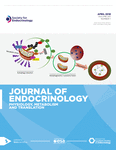Oviduct: roles in fertilization and early embryo development
- School of Molecular Biosciences, College of Veterinary Medicine, Washington State University, Pullman, Washington, USA
- Correspondence should be addressed to W Winuthayanon; Email: winuthayanonw{at}vetmed.wsu.edu
Abstract
Animal oviducts and human Fallopian tubes are a part of the female reproductive tract that hosts fertilization and pre-implantation development of the embryo. With an increasing understanding of roles of the oviduct at the cellular and molecular levels, current research signifies the importance of the oviduct on naturally conceived fertilization and pre-implantation embryo development. This review highlights the physiological conditions within the oviduct during fertilization, environmental regulation, oviductal fluid composition and its role in protecting embryos and supplying nutrients. Finally, the review compares different aspects of naturally occurring fertilization and assisted reproductive technology (ART)-achieved fertilization and embryo development, giving insight into potential areas for improvement in this technology.
- Received 30 September 2016
- Accepted 11 October 2016
- © 2017 Society for Endocrinology











